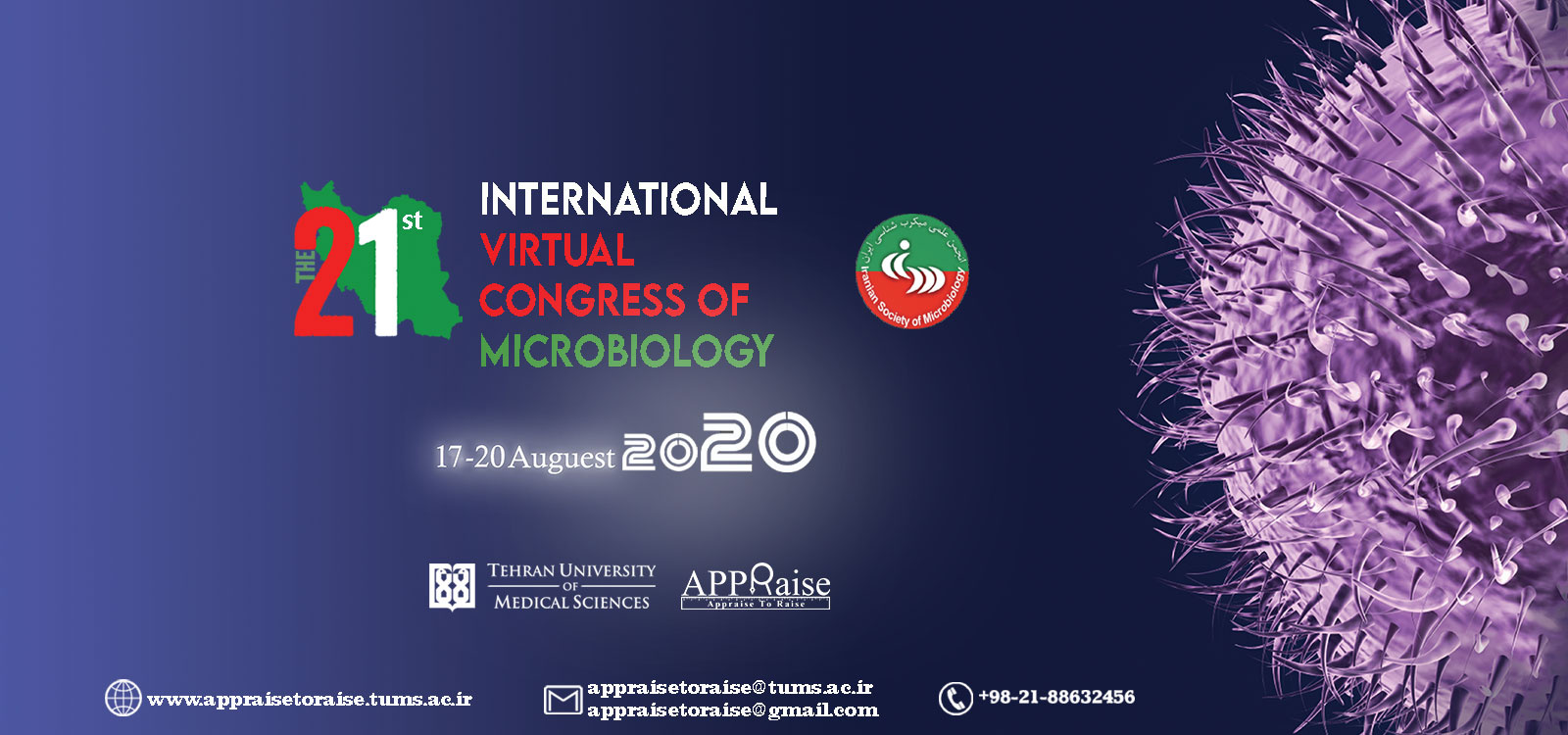Interview with Professor Christian Giske from Karolinska Institute on the sidelines of the TUMS 21st International Virtual Congress of Microbiology

The 21st International Virtual Congress of Microbiology of Iran
|
|
Doctor Christian Giske's is a professor and senior physician at the Department of Laboratory Medicine, Karolinska Institute in Sweden. His field of expertise is antimicrobial resistance, mostly focusing on Gram-negative bacilli such as Escherichia coli, Klebsiella pneumoniae, Pseudomonas aeruginosa and Acinetobacter baumannii, and also has extensive expertise in antimicrobial susceptibility testing. Professor Giske is the chair of the European Committee on Antimicrobial Susceptibility Testing (EUCAST), and is also greatly involved in the European Society of Clinical Microbiology and Infectious Diseases (ESCMID).
He has attended several scientific events such as ASM Microbe and annual meetings of the Clinical and Laboratory Standards Institute (CLSI) as a speaker, and has won some awards like the ESCMID Young Investigator Award in 2012 and the Translational Research Prize (Swedish Medical Association) in 2016. |
To make the congress participants more familiar with this scientific figure, our colleagues at the TUMS Directorate of International Relations have conducted a virtual interview with him as follows:
Q: Please give some information about your research conducted in the area of antibiotic resistance and tell us on which group of bacteria it was performed.
A: The research has mostly been carried out on Gram-negative pathogens. We are studying the relation between fecal carriage and development of clinical infections and also how we can modify this risk through decolonization of gut carriage. We are also studying effects of combination therapy between novel antimicrobials and phages. Furthermore, we are interested in microbiome research – for instance, how antimicrobials are affecting the microbiome.
Q: According to your research on antibiotic resistance, what strategies do you suggest for the fight against resistance?
A: I am particularly interested in work on strategies for decolonizing patients of fecal carriage of resistant pathogens. One of the strategies we are studying is bacteriophage therapy. I am also interested in strategies to preserve the activity of novel antimicrobial agents, and to establish surveillance against these at an early time point after introduction.
Q: Considering the high percentage of carriers, can you please explain why small percentages of people who carry resistance genes in the gut are at risk of expressing them?
A: We have studied this phenomenon and seen that mostly patients risk factors decide who will develop clinical infections, but it is also attributable to some features of bacteria – for instance some clones of Escherichia coli are more prone to prevail in the microbiome and confer repeated infections.
Q: Based on the results of your research, can bacteriophages be used as a treatment if antibiotic resistance is observed?
A: It could be used for decolonization we believe. Possibly also for treatment of subacute or chronic infections. Use of phages should only be done after susceptibility testing has been conducted – i.e. they should not be used empirically.
Q: Please elaborate on the protocols for treatment of HAP caused by PDR strains Acinetobacter and Klebsiella in Sweden and in Europe. Any information about these bugs at Europe is highly appreciated.
A: We have almost none PDR strains in our setting causing clinical infections. Acinetobacter would normally be managed with combination therapy (colistin, rifampicin, sometimes with addition of a carbapenem), but lately cefiderocol has emerged as an alternative. For Klebsiella, it depends on the resistance mechanism, but still colistin is used in combination therapy with carbapenems for instance. Ceftazidime-avibactam and meropenem-vaborbactam are other new alternatives, but they cannot be used against infections caused by metallo-beta-lactamase producing strains
Q: What about environmental source of Acinetobacter and Stentrophomonas? What disinfectant do you suggest to clean the hospitals and surfaces?
A: Normally a combination of alcohol-based disinfectants and Virkon.
Q: What about hand wash? What kind of detergents and disinfectant would you recommend to remove Acinetobacter?
A: We use a combination of regular hand wash and alcohol-based disinfectant (with moisturiser)
Q: How do you manage the educational activities and research programs at your university under COVID-19?
A: Teaching has been done almost exclusively online. Research has been taking place as normal in the lab, but it has been a challenge to keep up clinical research, so we have shifted to more lab-based research during this period.
Q: What is your prediction about the resistance of microbes to antibiotics in the post-corona period?
A: I am not sure corona will change things too much. Maybe there will be a drop for some time, but I do not foresee that the human memory will help us for very long. Perhaps there will be a greater interest in the threat from infectious disease, but it is difficult to say.
It is worth mentioning that Professor Giske will answer the questions of the participants live during his speech in the Congress which will be held on 20 August 2020, and this is a great opportunity to hear the latest information about the field microbiology from him.
For more information about the conference and how to register, refer to the link below:
http://www.ismcongress.ir/En_Default.aspx


Your Comment :